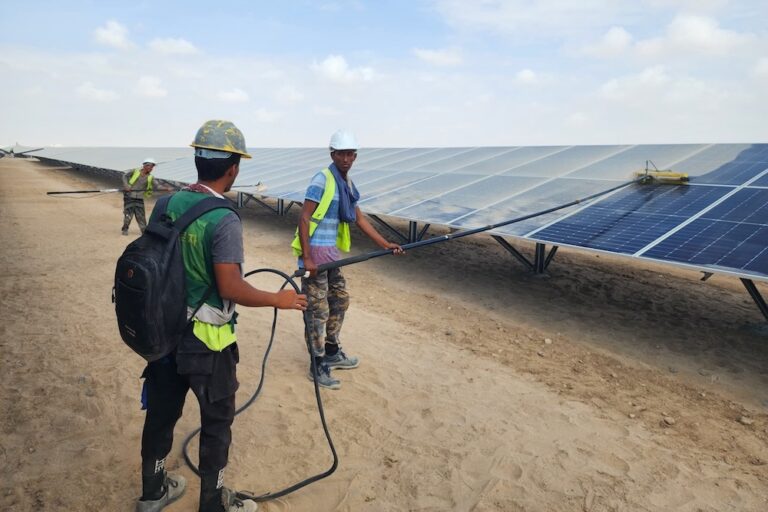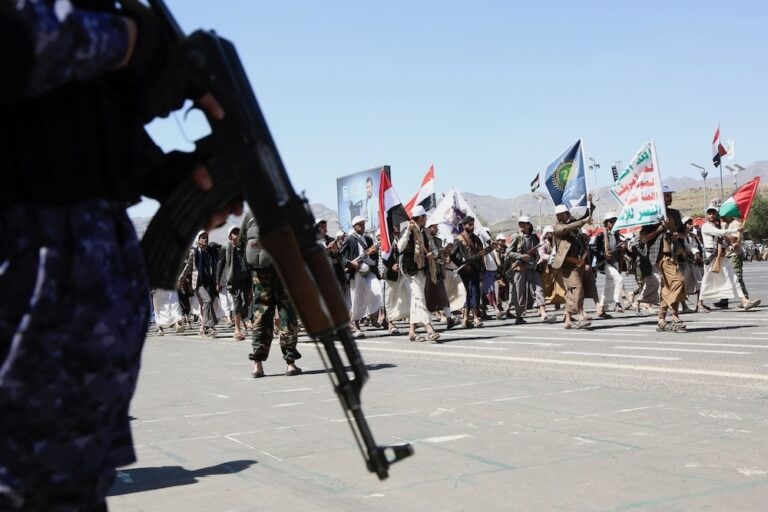(ARTICLE 19/IFEX) – The following is a 6 March 2009 ARTICLE 19 press release: Yemen: Women Journalists Subjected to Censorship and Slanderous Attack ARTICLE 19 marks International Women’s Day on 8 March with the release of a report analysing the role and representation of women in the Yemeni media. It is not easy to be […]
(ARTICLE 19/IFEX) – The following is a 6 March 2009 ARTICLE 19 press release:
Yemen: Women Journalists Subjected to Censorship and Slanderous Attack
ARTICLE 19 marks International Women’s Day on 8 March with the release of a report analysing the role and representation of women in the Yemeni media.
It is not easy to be a woman working for the media in Yemen, according to the research findings. Female journalists who criticise the government or the country’s President are regularly subjected to public slander in rival publications. This takes the form of insults or fabricated allegations about their personal lives, often published in publications owned or controlled by the government.
Public insults against women are particularly damaging in a country where women struggle to achieve prominence in public and professional life. Yemen is a conservative society which has a rigid code of “honour” and insinuations against an individual’s morality can have a devastating impact.
In Yemen, the media is frequently censored and all journalists run the risk of being harassed or threatened by the state if they openly criticise the government. All broadcast media is state-owned and controlled in Yemen and, while there are several independent newspapers and magazines, they may also censor themselves for fear of attack. Yet, it seems that women journalists are exposed to much more severe forms of attack, simply because they are women.
The research also found that women are severely under-represented in the Yemeni media. Less than 20 per cent of articles are written by women and less than 30 per cent of articles feature women as sources.
Stories about women overwhelmingly fall into a broadly “social” category, thereby conveying the perspective that women’s roles are mostly confined to the family and home. There are very few stories that depict women in leadership, in public life and in positions of authority. In addition, 50 per cent of articles about women portray them in an extremely negative light – either as victims, as morally compromised, or as somehow responsible for social ills.
“ARTICLE 19 calls on editors and media owners to protect women journalists from slanderous attack,” comments ARTICLE 19 Executive Director, Dr Agnès Callamard, “and to ensure that stories featuring women, reflecting women’s experiences and portraying women as fully-fledged members of society are given more prominence.”
ARTICLE 19 has also called upon the Yemeni government to ensure that freedom of expression is protected and enhanced, and that all means of censoring the media are immediately stopped.
The research was conducted by ARTICLE 19, in collaboration with the Yemeni Female Media Forum, and forms part of a larger project working to create a supportive legal framework for the media in Yemen.
For the full report, please visit: http://www.article19.org/pdfs/publications/yemen-an-analysis-of-women-in-the-media.pdf


